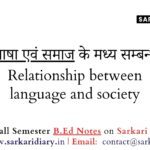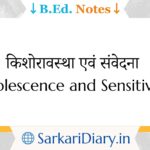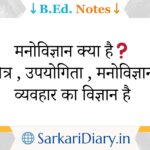• How do we live, what language we speak, what we eat, what we wear, what sports we play and what festivals we celebrate.
• All this is influenced by the geography and history of the place we live in.
• There are 8 main religions in the world (Hindu, Jain, Jewish, Parsi, Buddhist, Christian, Islam, Sikh). There are people (followers) of those 8 religions in India.
• More than 1600 languages are spoken here and there are more than 100 dances.
• Such diversity sometimes becomes a cause of misery.
• Make an impression in your mind in advance that the people of the village are like this, the people of the city are like that.
• Some people see the people of the village as ignorant while the people of the city are seen as lazy and concerned about money.
• When we have formed an opinion about someone in advance and we inculcate it in our mind, then it takes the form of prejudice.
• Most of the time this opinion is negative.
Difference between boys and girls
• Forming stereotyped beliefs – When we bind all people in the same image or make a firm impression about them, then it is called stereotyped belief.
• These types of perceptions prevent each human being from being seen as a unique and different person.
• We do not see that that person has certain qualities and abilities that differentiate him from others
Inequalities and Discrimination
• We often know why discrimination happens. When people start treating someone on the basis of prejudice or stereotyped beliefs, then there is discrimination and inequality.
• Some face discrimination based on both diversity and inequality.
• Dalit is a word that people from the lower castes use as their identity. Dalit means “crushed or oppressed”. The government places such people in the category of “Scheduled Castes”.
Dr. Bhim Rao Ambedkar (1891 -1956):-
• He was the father of the Indian Constitution and the biggest leader of the Dalits.
• He was born in the Mahar caste which is considered to be untouchable.
• Baba was the first person from his caste to complete his college studies and went to England to become a lawyer.
• Dalits were asked to do different types of government jobs so that they could get out of the caste system.
• Efforts were made to get Dalits to enter temples (2 March 1930) and led but later they adopted Buddhism on 14 October 1936 with 3.5 lakh followers.
Struggle for Equality
• Jobs are open to all the people. Apart from all this, the Constitution has put a special responsibility on the government to take special steps to get the benefits of this equality right to the poor and marginalized communities from the mainstream.
• But even so far justice has not been received completely due to orthodoxy. Inequality still exists today.
• Equality is the value for which we have to fight continuously.
• India is a secular country where people practice their religion without any discrimination.
• It is seen as an important factor in our unity.







